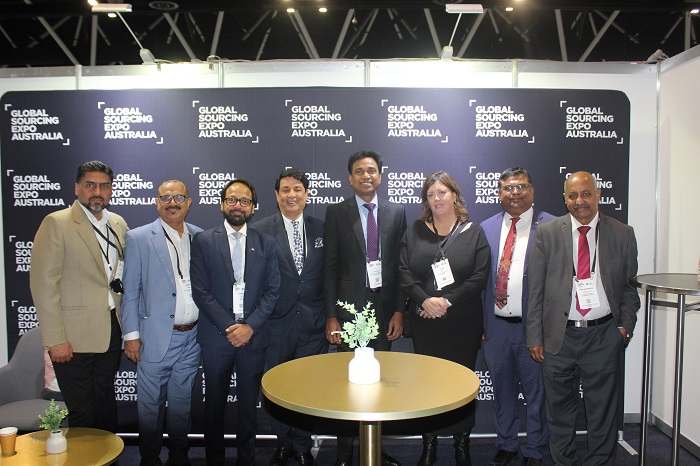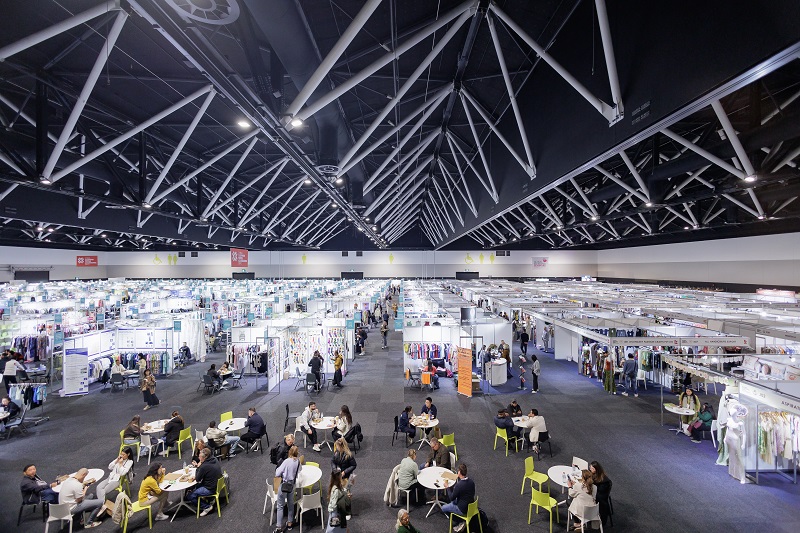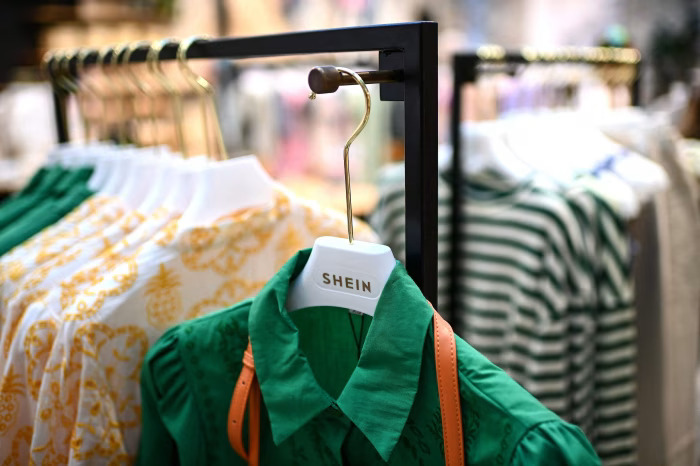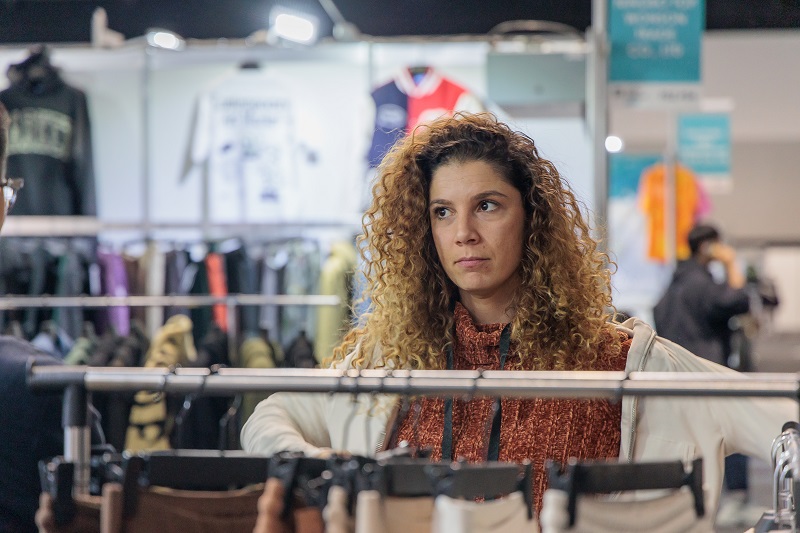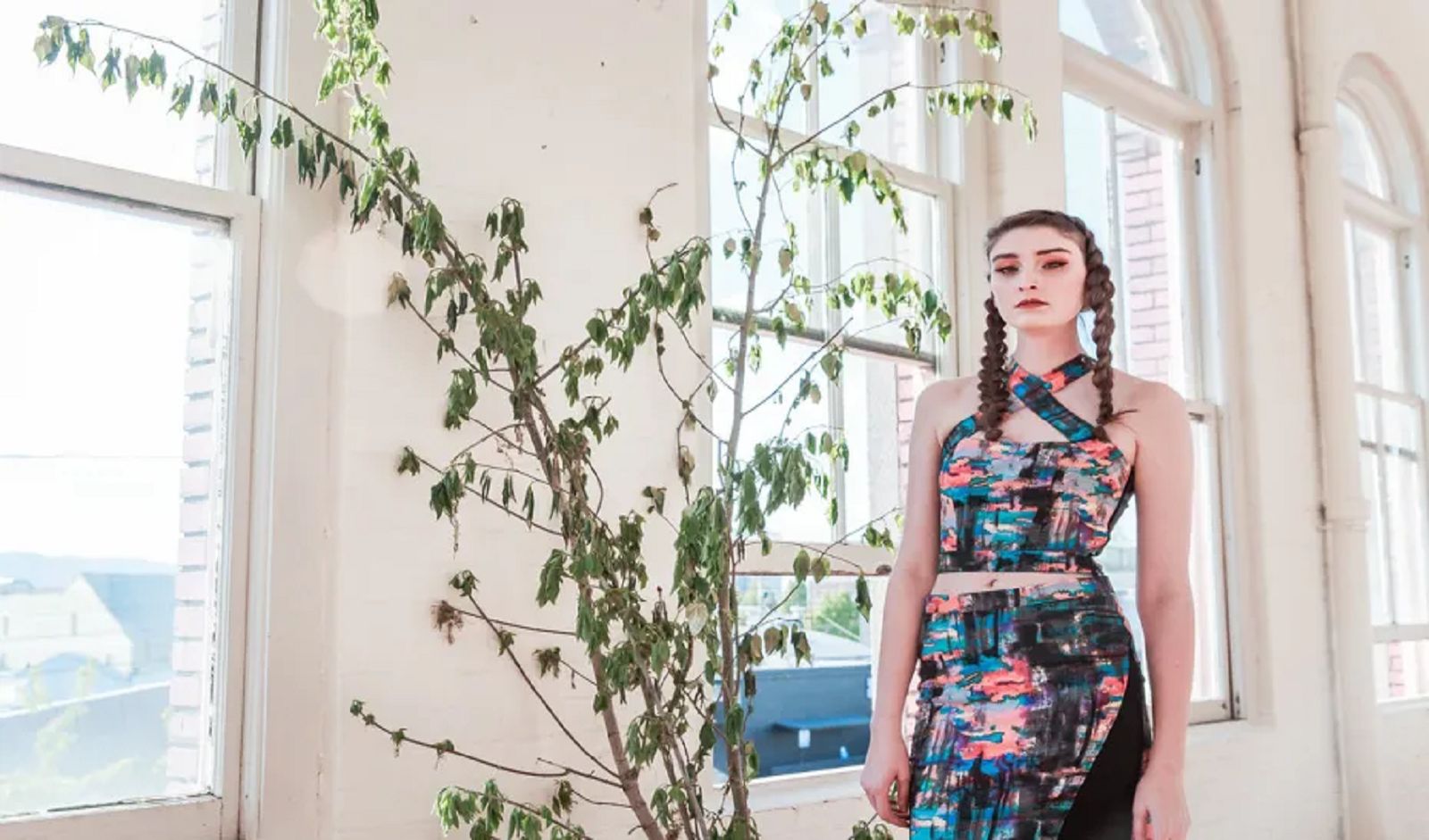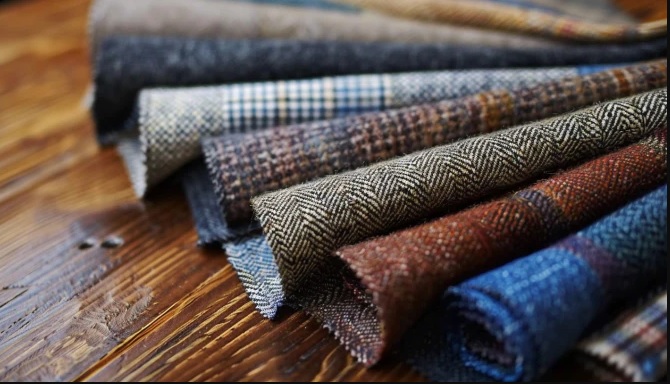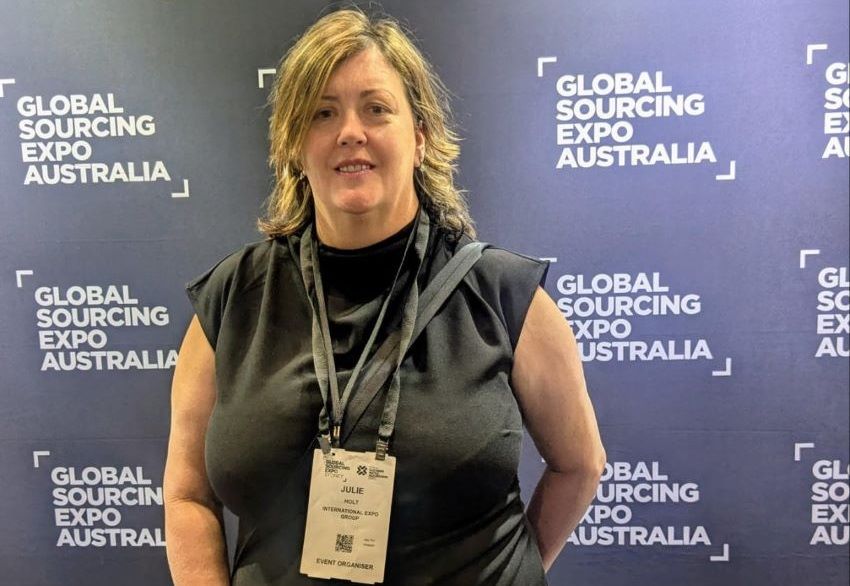FW
Eastman’s innovative Naia cellulosic fibers have once again earned the prestigious dark green shirt ranking in the 2023 Canopy Hot Button Report, solidifying the company’s commitment to protecting ancient and endangered forests while advancing sustainable fiber solutions. The recognition comes from maintaining a stellar score of 30 buttons, a metric used to assess sustainability across seven key categories for MMCF (Man-Made Cellulosic Fiber) producers.
Eastman first achieved a light green rating in 2019 and has consistently improved, reflecting ongoing innovation and eco-conscious practices. The Naia brand focuses on responsibly sourced materials, low-impact production, and sustainable fiber development, all designed to reduce environmental harm.
Carolina Sister Cohn, Global Marketing Leader at Eastman, emphasized that the recognition reinforces the company’s commitment to driving innovation in sustainable textiles. She highlighted Eastman’s focus on balancing innovation with responsibility, aiming to meet customer needs while prioritizing environmental stewardship.
Nicole Rycroft, Founder and Executive Director of Canopy, praised Eastman’s leadership in protecting critical forests and scaling Next Generation fiber solutions, citing its contribution to industry transformation.
Central to Eastman’s success is the Naia Renew portfolio, including Naia Renew ES, a fiber composed of 40 per cent certified recycled waste, 20 per cent recycled cellulose, and 40 per cent sustainably sourced wood pulp. Brands like Reformation are embracing Naia Renew, underscoring its market appeal.
Through investment in cutting-edge technologies and collaboration, Eastman continues to pioneer high-quality, eco-friendly fibers, reinforcing its commitment to a more sustainable textile future.
Halting their run since the easing of COVID-19 restrictions, demand for sportswear from running shoes to joggers and yoga mats from leading firms such as Nike, Adidas, Puma, Skechers and Asics has slowed down.
In FY24, sales by sportswear firms increased by 1-25 per cent Y-o-Y as against 35 per cent -85 per cent increase for the previous financial year, according to the latest regulatory filings.
Demand for fitness wear and sports equipment for disciplines other than cricket increased with the priortising of health by consumers with the onset of COVID-1.
Companies across the country capitalised on the rising popularity of casual styles in the wake of the pandemic. Demand for premium categories including sportswear, especially in cities, declined.
The segment faces short-term consumption stress although future outlook over long term remains bright, says Devangshu Dutta, Founder, Third Eyesight, a retail consulting firm. Over the last few years, footwear companies such as Under Armor, Asics, Skechers have expanded aggressively across India, making it amongst the fastest growing and largest markets for footwear companies.
With mid-to-high growth rates, Puma India has outpaced market growth even as subdued demand has lagged expectations, says Karthik Balagopalan, Managing Director
In October, Foot Locker entered into a long-term licensing agreement with Metro Brands to foray into the India market. According to this agreement, Metro Brands will own and operate Foot Locker’s stores in India while Nykaa Fashion will be its exclusive e-commerce partner.
However, the government ‘s decision to make BIS certification mandatory for footwear companies to obtain BIS certification in August’24 impacted sales even last year as BIS had not issued licences to several foreign brands whose products were manufactured outside India, which in turn, forced brands to cut down on supplies.
The regulatory changes caused certain anomalies in the earnings call of American footwear firm Skechers this year. The brand continues to work closely with both its team in India and regulators to further advance its local sourcing strategy. The brand is seeing positive trends and remains optimistic about the progress in this important market, says David Weinberg, COO, Skechers.
In a meeting with Muhammad Yunus, Interim Government Leader and BGMEA members, a US delegation comprising government officials, brand representatives, and civil society leaders emphasised on their shared commitment to foster independent, democratic trade unions for Bangladeshi workers and the businesses employing them.
Led by Kelly M. Fay Rodríguez, Special Representative, State Department and Thea Lee, Deputy Undersecretary, Department of Labor, the delegation included representatives from USAID, UNI Global Union, the Worker Rights Consortium, and executives from brands such as Gap Inc., PVH Corp (owner of Calvin Klein), and VF Corp (parent company of The North Face). Together, these companies purchase approximately $1.8 billion in apparel annually from Bangladesh, the third-largest garment supplier to the U.S.
The discussions emphasised on the importance of resolving labor rights challenges to sustain economic growth. The US delegation highlighted the importance of empowering workers through better rights, including freedom of association and collective bargaining for economic stability, human rights, and gender equity.
The delegation also addressed pressing issues with the BGMEA, including ongoing worker unrest over unpaid wages and delays in production caused by recent political instability and extreme weather. Amid these challenges, Bangladesh’s government formed a committee to assess labor and business conditions at the Beximco Industrial Park, a major textile hub facing financial strain. The Ministry of Labor and Employment has pledged to help settle outstanding arrears with assistance from the Finance Ministry. One of Bangladesh’s largest employers serving clients like PVH Corp, Target, and Inditex (owner of Zara), Beximco has been grappling with a liquidity crisis and legal troubles tied to one of its co-founders.
Despite these difficulties, the US Embassy expressed optimism about Bangladesh's resilience and a potential for collaboration to improve industry practices. According to the embassy, the United States is committed to working with Bangladesh to ensure stable employment, quality working conditions, and living wages that allow workers and their families to thrive.
Reinforcing the importance of maintaining a strong, competitive and socially responsible garment industry in Bangladesh, Steve Lamar, President and CEO, American Apparel and Footwear Association (AAFA), emphasised on the need for an open dialogue and responsible purchasing practices to address rising manufacturing costs and ensure fair margins for suppliers.
Pemmasani Chandra Sekhar, Union Minister of State for Rural Development and Communications, has assured textile manufacturers of developing a textile park in Andhra Pradesh besides securing a 50 per cent subsidy through the Central government. He pledged to discuss the matter with Giriraj Singh, Union Minister of Textiles.
Highlighting the ongoing ginning, spinning, and fabric production operations in the state, Chandra Sekhar emphasised the importance of increasing production and job opportunities in the state by offering a 50 per cent subsidy to encourage greater participation in textile production.
Set up at Gopalavaripalem near Chilakaluripet in Palnadu district, the park currently operates at just 50 per cent of its potential. Currently, only nine units in this park are operational with just 400 employees. The park is expected to be fully operational with the realisation of subsidies and improved farming support.
Chandra Sekhar emphasises, good quality seeds and fertilisers will help improve crop yields in the state, directly benefitting the availability of raw materials for the textile industry.
In 2014, the Central Government had announced plans to set up multiple textile parks nationwide, with two such parks to being developed in Andhra Pradesh. Local industrialists plan to set up 61 units in the park, including five weaving processing units, 54 weaving units, and two garment manufacturing units. The Centre has also declared a 30 per cent capital subsidy to support this initiative.
The textile park in Andhra Pradesh is envisioned to stimulate industrial growth and generate direct and indirect employment for 6,000 people.
At ISPO Munich exhibition, being held from December 3-5, 2024, the Lycra Company is promoting its bio-derived Lycra EcoMade fiber with samples featuring the renewable elastane as well as a fully immersive VR experience.
The bio-derived Lycra EcoMade fiber won two ISPO Textrends Awards for Fall/Winter 2026/27 at the exhibition. It was named in the Top 5 category in the fibers and insulation category. A garment made with the same fabric was also recognised in the pants and tights category. The Brazilian activewear and swimwear brand Live! produced the fabric and leggings using preview samples of this highly anticipated fibre.
To be launched in 2025, the bio-derived Lycra EcoMade fiber will be the world’s first large-scale commercially available renewable elastane. Previewed at ISPO, the product contains 70 per cent renewable content, and is certified under the USDA Bio-Preferred Program. It delivers equivalent performance to the original Lycra fiber, and no re-engineering of fabrics, processes or garment patterns is required.
The bio-derived Lycra EcoMade fiber represents an exciting future where the company can make real, transformative change in the industry without sacrificing performance, says Steve Steward, Chief Brand and Innovation Officer, The Lycra Company.
Stewart is presenting All In The Power of Partnership on ISPO’s Green Stage on December 4, 2024. His presentation details how collaboration has been critical to commercialising the new fiber and bringing it to market.

The global textile industry, is on the cusp of a transformation driven by Industry 5.0. This new era of industrialization goes beyond the automation and data exchange of Industry 4.0, focusing on the collaboration between humans and machines to achieve enhanced efficiency, sustainability, and personalized customer experiences.
Boosting profits
Industry 5.0 promises to unlock new levels of profits for textile manufacturers with increased efficiency as advanced robotics, AI-powered predictive maintenance, and real-time data analysis optimize production processes, reducing downtime and waste. It will also help in mass personalization. Collaborative robots (cobots) working alongside human artisans enable the creation of highly customized products at scale, catering to individual customer preferences. Industry 5.0 technologies also facilitate the use of recycled materials, reduce energy consumption, and minimize waste, leading to cost savings and a smaller environmental footprint. Meanwhile AI-driven virtual try-ons, personalized recommendations, and faster delivery times improve customer satisfaction and drive sales.
Several factors are giving a push to the adoption of Industry 5.0 in the textile sector. First and foremost is growing consumer demand for customization that reflects their individual style and needs. Growing awareness about the environmental impact of textile production too is pushing companies to adopt sustainable practices. Labor shortage is also a driving factor. The textile industry faces a shortage of skilled workers, making automation and human-machine collaboration essential. And the development of affordable and user-friendly cobots, AI algorithms, and IoT devices is making Industry 5.0 solutions more accessible.
Table: Global implementation
|
Country/Region |
Company |
Industry 5.0 implementation |
Impact |
|
Japan |
Shima Seiki |
AI-powered knitting machines that produce customized garments on demand |
Reduced lead times, minimized waste, increased customer satisfaction |
|
Germany |
Adidas |
Robotic arms and AI algorithms used in its Speedfactory to produce customized footwear |
Faster production, reduced labor costs, increased flexibility |
|
Italy |
Santoni |
Cobots assist human workers in the production of high-end knitwear |
Improved efficiency, enhanced product quality, reduced worker fatigue |
|
USA |
Levi Strauss & Co. |
Laser finishing technology used to create unique denim washes |
Reduced water and chemical usage, increased design possibilities |
|
Denmark |
ECCO Leather |
AI-powered leather cutting system optimizes material usage |
Minimized waste, reduced costs, improved sustainability |
And there are examples galore across the globe of companies adopting Industry 5.0 in their processes. For example, Shima Seiki, a leading Japanese manufacturer of knitting machines, has embraced Industry 5.0 by incorporating AI and robotics into its production processes. Its SDS-ONE APEX series design system uses AI algorithms to generate knitting programs based on 2D designs, enabling the production of complex and customized garments with minimal human intervention. This has resulted in significant reductions in lead times and waste, while also allowing for the creation of highly personalized products.
Industry 5.0 is poised to revolutionize the textile industry, creating a more sustainable, efficient, and customer-centric manufacturing landscape. Companies that embrace these technologies will be well-positioned to thrive in the years to come.
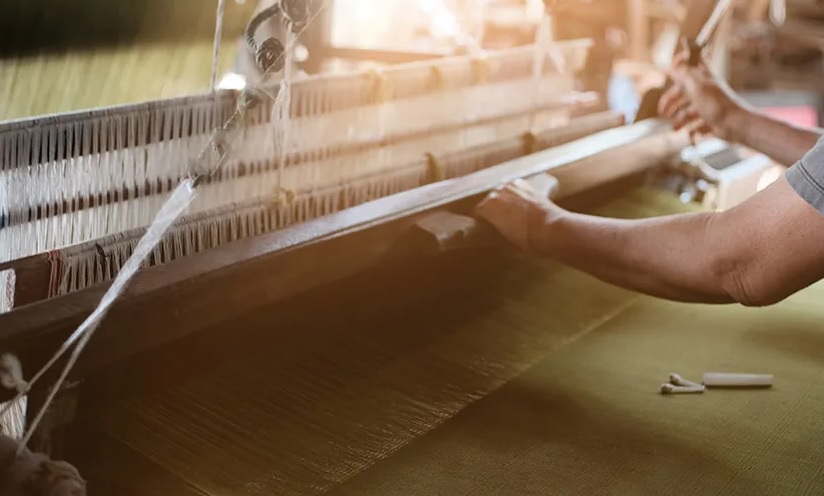
India's textile industry is one of the main contributors to nation's economy. Recognizing its potential, various states are vying to attract investments and establish themselves as textile hubs. This has resulted in a diverse landscape of investment policies, each with its own strengths and focus areas.
Drivers of state investment policies
Some states like Gujarat, Maharashtra, and Tamil Nadu, with established cotton and synthetic fiber production, offer advantages in raw material sourcing. Skilled workforce is another growth driver, clusters with a history of textile manufacturing, such as Tiruppur in Tamil Nadu and Surat in Gujarat, boast of a skilled labor pool. Then well-developed industrial zones, ports, and connectivity play a crucial role in attracting investors. States also offer a range of incentives, including capital subsidies, tax breaks, and power tariff concessions.
Table: State-wise policy focus and scorecard
|
State |
Focus areas |
Strengths |
Case studies |
|
Gujarat |
Textile parks, skill development, technology upgradation |
Strong infrastructure, proactive policies, established industry clusters |
Welspun Group's integrated textile facility in Anjar |
|
Maharashtra |
Cotton value chain, export promotion, infrastructure development |
Large domestic market, port access, skilled workforce |
Raymond's manufacturing unit expansion in Aurangabad |
|
Tamil Nadu |
Apparel manufacturing, export-oriented units, cluster development |
Skilled labor, established apparel ecosystem, port connectivity |
Ahluwalia Contracts' garment manufacturing unit in Tiruppur |
|
Telangana |
Mega textile parks, incentives for MMF (man-made fiber) sector, skill development |
Government support, strategic location, growing textile industry |
Youngone Corporation's integrated textile park in Warangal |
|
Andhra Pradesh |
Integrated textile parks, incentives for spinning mills, infrastructure development |
Abundant land availability, government support, strategic location |
Kitex Garments' expansion in Anantapur |
A look at the table shows, Gujarat scores high on infrastructure development and ease of doing business. For example, Reliance Industries has invested in a mega textile park in Gujarat. Tamil Nadu leads in apparel manufacturing and skilled workforce. Telangana offers attractive incentives for MMF and technical textiles. In fact, Page Industries is setting up an apparel manufacturing unit in Telangana. Aditya Birla Group on the other hand is expanding its viscose staple fiber production in Gujarat and Madhya Pradesh.
However, despite positive initiatives, several bug bears persist. One major factor is the infrastructure gaps as some states need to improve road and port connectivity. Skill shortage is another issue therefore, upskilling and training are crucial to meet industry demands. And with concerns about the environment sustainable practices and water conservation are critical.
Future growth hinges on automation and Industry 4.0 solutions that can boost productivity; adoption of circular economy principles and eco-friendly practices; and focus on innovation and value-added products to compete globally.
The 29th Global Textile Industry Survey (GTIS), conducted by the International Textile Manufacturers Federation (ITMF) in November 2024, reveals a mixed yet resilient outlook for the global textile sector. While short-term business sentiment has slightly declined over the past two months, long-term improvements remain steady since the low of November 2023. South America and Africa show strong optimism, leading regional performance with increasing order intake, while Europe and the textile machinery segment experience weaker demand.
The global textile value chain is seeing a continued decrease in inventory levels, although with regional variations. Africa reports the highest levels of inventory, while garments maintain the lowest. Despite challenges such as geopolitical tensions, inflation, and high energy prices, the industry’s confidence in future business prospects remains strong, particularly in South America and Africa.
Global demand remains a key concern, but its intensity is waning. Notably, the shortage of skilled workers ranks as the third most pressing issue, highlighting a growing challenge for the industry. Order cancellations have continued to decline for the 14th consecutive month, and the average order backlog stands at 2.1 months, indicating ongoing recovery and stability within the sector.
Overall, the survey highlights a positive trajectory for the global textile industry, marked by improved order intake, a diminishing cancellation rate, and continued optimism despite facing persistent global challenges.
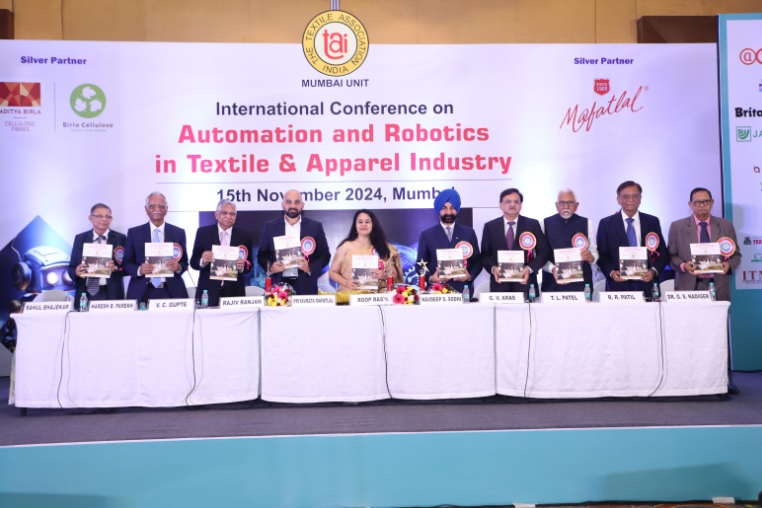
The Textile Association (India), Mumbai Unit, hosted an International Conference on Automation and Robotics in the Textile & Apparel Industry on November 15, 2024, at The Lalit, Mumbai. This event brought together leading professionals, policymakers, and technology experts to explore the potential of automation in transforming India’s textile sector. Over 350 delegates, including industry leaders and academic professionals, attended the conference, underscoring its significance in driving innovation.
Focus on automation and robotics
The conference revolved around the theme of leveraging automation and robotics to enhance productivity, reduce costs, and improve global competitiveness. With India’s textile industry facing challenges like rising labor costs, inefficiency, and increased competition, automation has emerged as a strategic imperative.
Roop Rashi, Textile Commissioner, inaugurated the event as the Chief Guest. In her keynote address, she emphasized the critical role of automation in achieving higher productivity, cost savings, and sustainable growth. She highlighted that the government is actively supporting initiatives to modernize the industry, thereby encouraging the adoption of advanced technologies.
Keynote session: Global perspectives
Navdeep S Sodhi, Partner at GherziTextil Organisation, delivered the keynote address. He presented an in-depth analysis of the global landscape, stressing how automation could enable Indian textile manufacturers to compete with global leaders. According to Sodhi, automation is no longer a luxury but a necessity for companies looking to thrive in an increasingly competitive market.
He outlined the importance of integrating artificial intelligence (AI) and robotics to optimize supply chains, reduce waste, and enhance product quality. His insights were complemented by case studies from international markets where automation has yielded significant productivity gains.
An important highlight of the event was the Industrial Excellence Award, presented to Pradeep Dodhia, Managing Director of Dodhia Synthetics Ltd. This prestigious award recognized his outstanding contributions to the textile industry, particularly in adopting innovative practices that have set benchmarks for others. Dodhia’s efforts in integrating modern technologies into his company’s operations were applauded by the audience.
Technical sessions: Insights into innovation
The first technical session delved into various facets of automation in textile manufacturing, emphasizing predictive maintenance through AI-based solutions, waste management technologies aimed at enhancing sustainability, and process optimization tools designed to streamline production and improve efficiency.
Presentations from experts detailed how predictive maintenance systems can foresee equipment failures, thus minimizing downtime and saving costs. Speakers also highlighted innovative waste management solutions that align with the industry’s growing focus on sustainability.
The second session spotlighted advancements in storage automation and warehouse management systems, innovations in digital printing technologies, and upgrades in textile machinery integrating robotic systems. It also explored IT solutions for supply chain management and real-time monitoring, highlighting their role in enhancing operational efficiency.
This session emphasized the growing role of digital printing and smart warehouses, enabling faster turnaround times and better inventory control. Presentations demonstrated how robotic systems are reducing human intervention in complex manufacturing processes, thereby increasing precision and efficiency.
Expert panel discussion
A notable feature of the event was a panel discussion moderated by Rajiv Ranjan, an industry expert with extensive knowledge of automation trends. The discussion delved into the challenges of adopting automation in India, including high initial costs and the need for skilled labor. Panelists also explored solutions to bridge these gaps, such as government incentives and training programs.
The panelists agreed that while automation presents certain challenges, the long-term benefits far outweigh the costs. They stressed that Indian textile companies must embrace these technologies to remain competitive in global markets.
Key takeaways and future outlook
The conference concluded with a consensus that automation and robotics will be pivotal in shaping the future of India’s textile and apparel industry. Delegates left with actionable insights into integrating these technologies into their operations.
TAI Mumbai’s initiative to organize this event reflects its commitment to fostering innovation and knowledge sharing within the industry. With the successful conclusion of this conference, the textile sector is poised to take significant strides toward a more automated and efficient future.
Canopy's latest Hot Button Report reveals that 71 per cent of rated man-made cellulosic fibre (MMCF) producers have achieved green shirt status or higher, a designation recognizing leadership in eliminating Ancient and Endangered Forests and prioritizing low-carbon, circular fibres in supply chains. These top producers now account for 53 per cent of the global supply of viscose, rayon, lyocell, and other MMCF textiles.
For the first time, three major global producers - Aditya Birla (India), Lenzing (Austria), and Tangshan Sanyou (China), have all earned dark green shirt status, reflecting a global commitment to sustainable sourcing in MMCF production. The report arrives at a critical moment, with MMCF demand surging by nearly half a million tonnes this year. However, a significant portion of this expansion comes from producers flagged with red shirts, indicating sourcing risks from high-carbon and biodiverse forests.
Madelene Ericsson Ryman, Sustainability Business Expert at H&M Group, expressed optimism about the growing number of producers prioritizing sustainability. Since 2020, H&M has exclusively sourced from green shirt producers, aligning with its environmental goals.
The report highlights key advancements, noting that 97.5 per cent of global MMCF production is now rated, with several producers advancing in their rankings. Chinese manufacturers such as Tangshan Sanyou and Yibin Grace, along with global players like Eastman, have achieved dark green status. Most engaged producers are incorporating low-carbon, Next Gen materials, often derived from waste textiles, or are investing in advanced research and development.
Nicole Rycroft, Founder of Canopy, emphasized the report’s progress, noting that 71 per cent of MMCF producers now align with brands' sustainability goals. She underscored the need for continued collaboration to scale Next Gen production, protect forests, support local economies, and promote environmental stewardship.
Since 2016, the Hot Button Report has served as a crucial resource for over 550 brands, retailers, and designers, guiding sustainable sourcing in forest-based fabric supply chains. CanopyStyle partners remain committed to sourcing exclusively from green shirt producers, fostering the shift toward more sustainable, circular materials.


